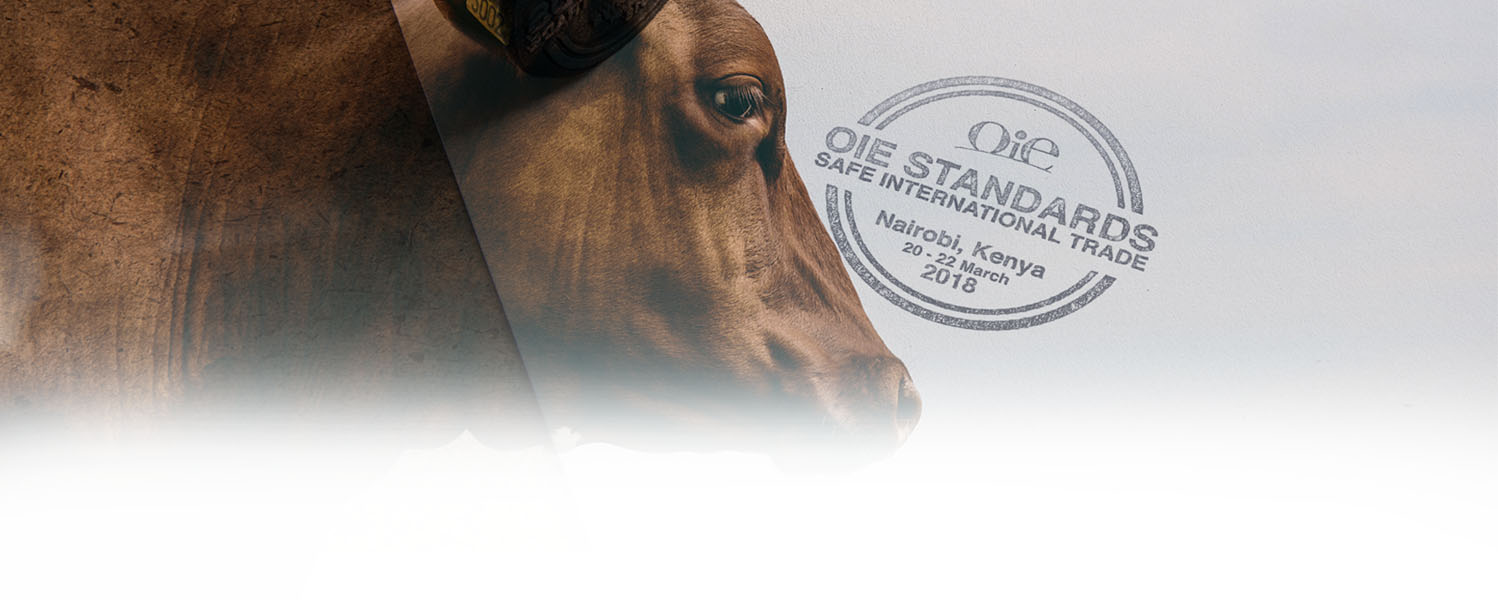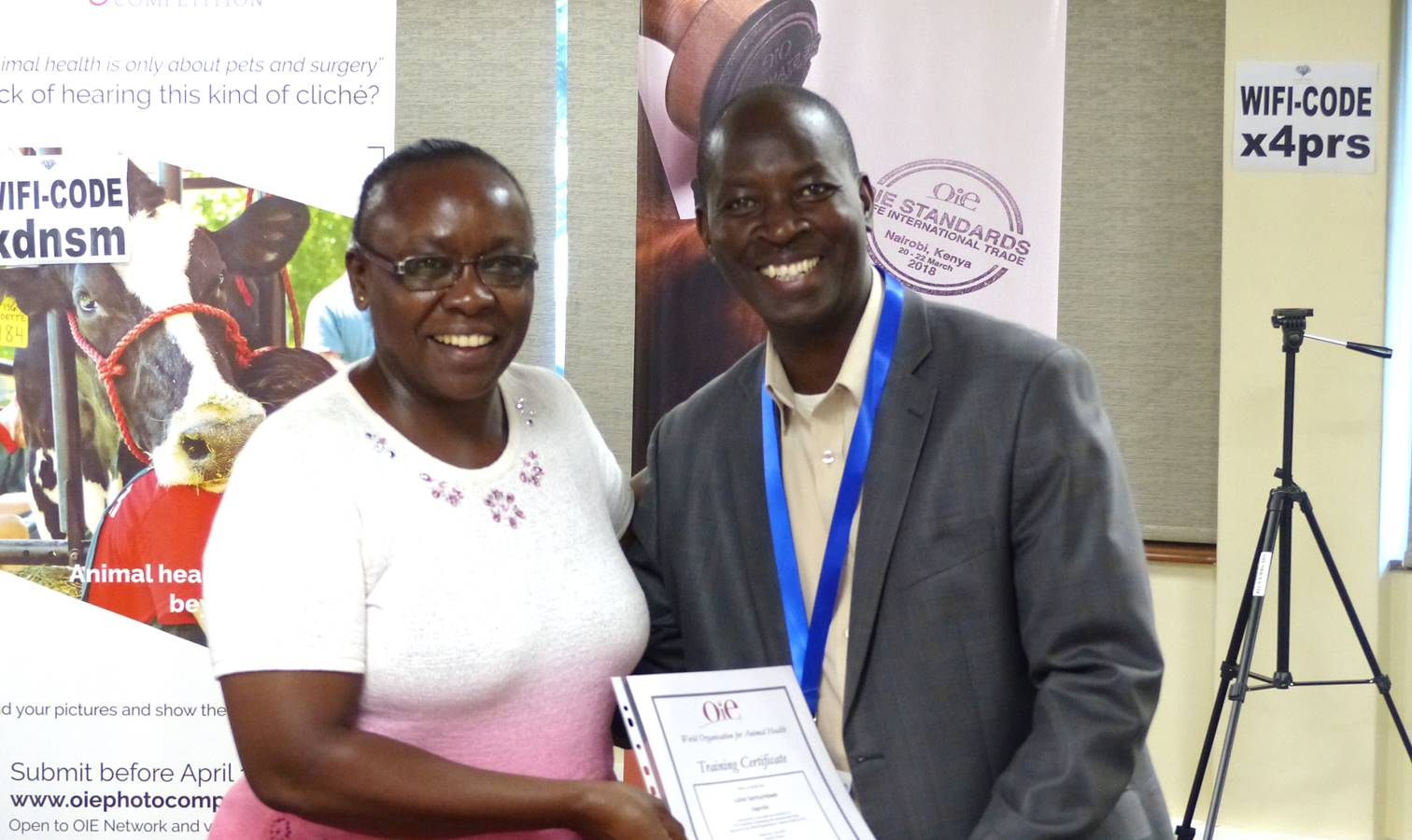
Dr Juliet Sentumbwe, OIE Delegate of Uganda receiving her training certificate from OIE Delegate – colleague Dr Obadiah Njagi from Kenya (right).
More countries in Africa could engage in more open regional and international trade of animals and animal products, such as milk, meat, eggs and honey, if there was a better understanding of the principles of international trade as described in the World Trade Organization’s Agreement on the Application of Sanitary and Phytosanitary Measures (WTO SPS Agreement) and the internationally recognised standards for animal diseases and zoonoses developed by the OIE.
In the framework of its 6th Strategic Plan, the OIE is currently rolling out a training programme, targeting senior veterinary officials, responsible for certification, along with risk analysis staff and import-export desk officers, to boost the understanding of the traditional (geographical) and more innovative (non-geographical) standards that facilitate safe and affordable trade of commodities if respected by both trading partners, the importers and the exporters. Following successful training courses conducted in the Americas and Asia, Nairobi played host to the first such seminar for English speaking participants from Africa. This well-attended three day seminar was supported by the Government of Kenya and the Directorate General Health and Food Safety (DG SANTE) of the European Commission. Overall some 60 country representatives, regional and international experts and observers attended the workshop, from 21 African countries : Angola, Botswana, Eritrea, Ethiopia, Gambia, Ghana, Kenya, Lesotho, Malawi, Mauritius, Mozambique, Namibia, Nigeria, Rwanda, Seychelles, Somalia, South Sudan, Sudan, Uganda, Zambia and Zimbabwe.
The opening ceremony was held at the Jacaranda Hotel and was graced by representative of the Hon. Minister of Agriculture and Irrigation, Mr. Mwangi Kiunjuri, Mrs. Lornah Akoth Odero, Director of Administration, State Department of Livestock, who delivered his opening address, alongside Dr. Samuel Wakhusama, OIE Sub-Regional Representative for Eastern Africa, Dr. Moritz Klemm of the European Commission (DG SANTE) in Brussels, Miss Myra Bernardi of the European Union Delegation in Nairobi (EEAS) and Dr. Obadiah Njagi, OIE Delegate of Kenya and Director of Veterinary Services.
Facilitated by the OIE’s Standards Department and by the President of the OIE Scientific Commission for Animal Diseases (SCAD), the training course focused on OIE standards, disease status, trade facilitating mechanisms, risk analysis and trade negotiations, and alternated between formal presentations and practical sessions based on case studies such as the trade of boneless beef or live goats. Participants also visited the facilities of the meat processing company Farmers Choice, a Kenyan enterprise, exporting various meat products to regional markets in Africa and the Middle East.
Several facilitators had been brought in, from the OIE offices in Kenya and in Botswana, the University of Pretoria (South Africa) and the Canadian Food Inspection Agency (CFIA), along with active participation of the African Union (AU-IBAR) and the European Union (DG-SANTE).
At the end of the seminar, participants appreciated the very interactive and participatory nature of the seminar, with many practical (and physical) exercises being conducted throughout the three days. As one participant put it : “Now using the Code to make a health certificate with appropriate conditions is possible and carrying out a risk analysis targeting a product of interest and not just bulking products is clear. How to define zones and implement OIE standards seems possible thanks to the training. Above all, I’m grateful that the training was enlightening even though some presentations were made last minute as some of the trainers could not attend”. The next seminar in Africa will target French-speaking participants and will be held in 2019.
All pictures (c) P. Bastiaensen (oie) 2018


